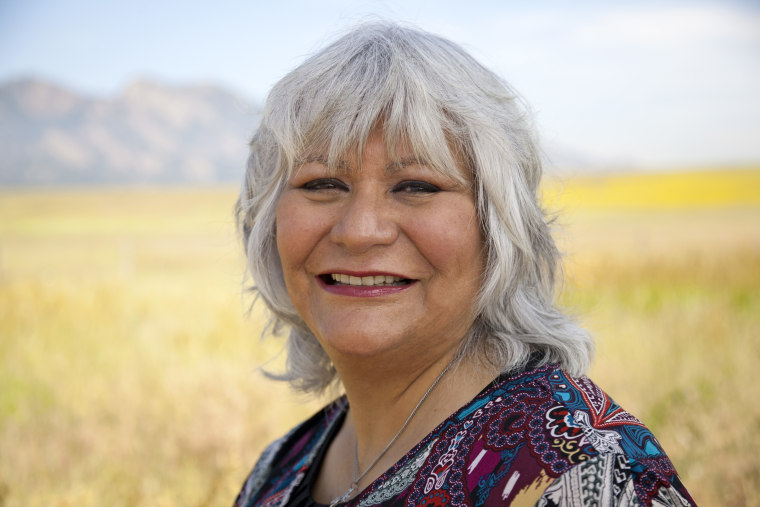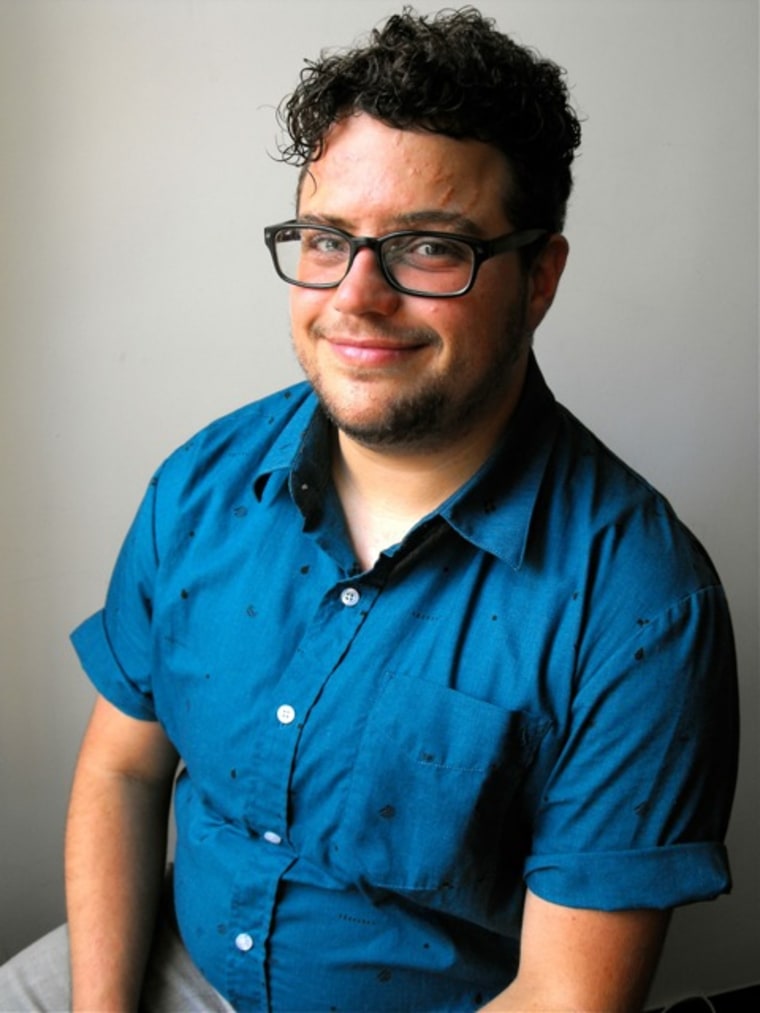For Jennicet Gutiérrez, an undocumented transgender woman, the moment of truth came on the evening of June 24th. She was attending a reception at the White House for Gay Pride Month, and she was in the same room with the most powerful man in the world.
“As President Obama spoke about LGBT progress, I couldn’t help thinking about my transgender sisters in (immigration) detention who were suffering. I suddenly felt so tired of the violence and transphobia we face,” she said. “I felt this sense of urgency, too. It was the opportunity of a lifetime and I didn’t want to wait. I had to speak up for others.”

In an episode that made headlines worldwide, Gutiérrez interrupted the president as he spoke, shouting, “President Obama, release all LGBTQ immigrants from detention and stop all deportations!” The president told her to be quiet or leave. Gutiérrez was eventually escorted from the room.
But she had made her point, in a huge way. “I spoke out because our issues and struggles can no longer be ignored,” Gutiérrez later wrote in an essay for the Washington Blade. “There is no pride in how LGBTQ immigrants are treated in this country and there can be no celebration with an administration that has the ability to keep us detained and in danger or release us to freedom.”
Gutiérrez is among the increasingly visible community of transgender Latinos. These men and women are fighting for equality, acceptance, and the right to live as their authentic selves. In ways large and small, they hope to replace the pain and shame that can accompany being transgender with a sense of pride.
Gutiérrez’ concerns about the hate crimes and abuse suffered by transgender Latinos are borne out by data. In August, Tamara Dominquez was killed in Kansas City, becoming the 17th transgender woman of color killed in 2015. Meanwhile, in immigration detention, transgender Latinos are often harassed, humiliated, and subjected to physical violence. A 2013 report by the Center for American Progress found that LGBT immigrants are 15 times more likely to face sexual assault in detention than heterosexual detainees.
It is no exaggeration to say that coming to terms with being transgender is a difficult, and at times lonely journey. This may be a function of the fact that only 0.3 percent of the population is estimated to be transgender, according to The Williams Institute at UCLA.
“For most of my life I felt that I did not fit the mold that everybody else wanted me to fit. I tried hard to be a good man to the point where I ended up in law enforcement, and married to a woman,” said Nicole Garcia, 55, of Boulder, Colorado. “But it never felt right, and I never had words for it.”

Things changed for Garcia after attending a conference on gender identity. “On a Saturday morning I went to a workshop on transsexuals. And as I sat there and listened to people talk of never feeling comfortable in their own skin, at that moment, I knew I was a woman,” she said. “That was my story! Throughout my life I had had indicators, but I stifled them. But at that moment I knew I was Nicole.”
It was not easy to break the news of transitioning to her family, Garcia said. “My mother initially told me just to leave the house, and we didn't see each other for six weeks. It was a tremendous shock to her. With my sisters, I felt like I was letting them down; they didn’t have a big brother anymore.”
RELATED: Beyond Caitlin: In Texas, A Transgender Latina's 15-Yr Journey
Then, as her father was dying from cancer, Garcia recounts, her dad referred to her as “mi hija” (my daughter). “It was three in the morning, and I was so shocked, we were there in the hospital, and I asked him why he finally called me “hija.” He said it was because it was the first time he ever really saw me happy. He said life was too short, and that you just have to be who you want to be.”
“The transgender community is more than a ”moment” in the media; in reality, many people are living out daily struggles, whether that means finding money to buy hormones or trying to get educated.”" says Arianna Inurritegui-Lint, of Florida's Trans-Latina Coalition.
Today Garcia is fully reconciled with her mother. She is a nationally-certified counselor, and is a candidate for ordination in the Evangelical Lutheran Church in America. She credits her faith with helping her overcome the drinking and depression that marked her younger days. The former “good Catholic boy” is living proof, she said, that “trans people have a place in the bosom of the Lord.”
Still, stories of family stress and anxiety are common among transgender Latinos.
“When I was a kid, there was a strong sense of confusion. From an early age I could sense something different about me, but I didn’t know what it was. It was like I was living life in a fog,” said Rodrigo Heng-Lehtinen, 29, of Los Angeles. “Something was a barrier between me and other people, between me and happiness, but I didn’t know what it was. Then I went to college and things clicked. It was like a light bulb, and I understood that my path was clear.”

Heng-Lehtinen, the son of longtime Florida Republican Congresswoman Ileana Ros-Lehtinen, was fearful of telling his family about his gender identity. “The script in your head is that your family is going to leave you. It feels like you have to brace yourself for the worst,” he said. “But I was incredibly lucky. My family went through the journey of what transgender was with me. They took the time to educate themselves. They fully, and publicly, accept my gender identity.”
Heng-Lehtinen acknowledges that he was fortunate, pointing out that 57 percent of transgender people face some level of family rejection.
A study by the National Center for Transgender Equality provides a sobering look at the lives of transgender people. Members of the transgender community face pervasive discrimination in housing and the workplace. They are more likely than others to live in poverty. “A staggering 41 percent of respondents reported attempting suicide,” the report noted, “compared to 1.6 percent of the general population.” Among transgender Latinos, this figure is 47 percent.
“Not long ago, my mother told me that I have changed her perception of what it means to be a woman. She said that she loves me and that she embraces me fully," says Jennicet Gutierrez.
In addition, the Centers for Disease Control and Prevention reports that transgender women are at high risk for HIV.
According to Monica Trasandes, Programs Director, Spanish-Language and Latino Media of GLAAD, “Transgender people are at disproportionate risk for everything from discrimination to homelessness. It is difficult for trans people to find a job, and they experience a general lack of respect. A lot of people don't know any trans people; most people now know LGB – but not the T.”
This ignorance, she explained, can have troubling consequences. “The lack of knowledge lets people think that they can yell something out the car (at transgender people), throw something, do some horrendous thing. Trans people will tell you that they get accosted, they get harassed. They are too often the victims of violence.”
In the face of such realities, transgender Latinos have built upon a long tradition of resilience. One of the pioneers of the LGBT rights movement, which began at New York City’s Stonewall Inn in 1969, was Sylvia Rivera, a transgender Puerto Rican woman. Transgender Latinos are serving in the U.S. military and starting their own nonprofit organizations. They are profiled on the editorial page of the New York Times.
Yet transgender Latinos say that progress does not come easy. “When you are transgender, you have to work doubly hard at everything, to be successful,” said Arianna Inurritegui-Lint, 42, of South Florida’s Trans-Latina Coalition. “People judge us. It is sad, it can be hurtful. But we just want to go on living our lives, living our truth, living our happiness.”

“I think we are seeing more role models for our community,” Inurritegui-Lint observed, citing former Olympian Caitlyn Jenner and actress Laverne Cox. “But the majority of us are not living lives like they are. They are celebrities, we have to fight to be treated with basic dignity. The transgender community is more than a ”moment” in the media; in reality, many people are living out daily struggles, whether that means finding money to buy hormones or trying to get educated.”
She believes that the key to true progress is social activism, such as obtaining inclusion in federal anti-discrimination legislation. In most states it is still legal to discriminate against transgender people.
These days, Jennicet Gutiérrez looks back on her moment in the spotlight as a personal breakthrough. “Before I confronted the president, it was like in my life, I was carrying these chains,” she said. “That night at the White House, I felt those chains break and with that, I was bringing my dignity and my humanity back. That moment for me was scary, yet powerful in so many ways. For a few seconds, I was heard, our community was heard.”
Gutiérrez feels that she is finally becoming the person she was meant to be. “Not long ago, my mother told me that I have changed her perception of what it means to be a woman. She said that she loves me and that she embraces me fully. So I am feeling the love from her, and from my brothers and sisters.”
“But for trans people, there is still so much work to be done,” she said. ”And I am more passionate about my community than ever.”
